About Me
BIPOC Anxiety, Boundaries, and Sex Therapist - Toronto
Hey! I’m so glad you’ve stumbled across this page, let me tell you a bit about myself.
I am a huge advocate for self-care, but we all know that actually doing that for ourselves can be a challenge. I am no stranger to this.
Growing up as a little girl surrounded by strong Black women, it was hard to accept that reaching out for help was a necessity of life. It takes a village is a well-known phrase but for some reason I didn’t think it applied to me, especially when it came to mental health. I finally decided to make the big decision to reach out and work with a therapist when life catapulted at me like a NFL line backer, and left me feeling at my lowest. It can happen to us all – it just looks really different for each of us.
In the end, reaching out for help made me stronger. It provided me with perspective beyond the one-road tunnel vision I had. I developed a new relationship with myself and got really good at not only identifying my needs, but responding to them in healthy ways that had some really nice ripple effects in other parts of my life.
I can confidently say that though things got better, self-work never really truly ends. Every day I make the conscious decision to check myself – check my thoughts, check my responses to others, and check that I’m actually applying the skills from my toolkit. It’s a liberating feeling – having a toolkit. Yours is building too!
On a lighter note – it must be mentioned that hobbies were key in this journey of thriving while surviving. Traveling, cooking, loved ones, and water sports like surfing and paddle boarding have a home in my heart. This adventurous and open-minded side of self has most definitely made it’s way into my practice.

The challenge is not
to be perfect – it is to be whole.
Jane Fonda
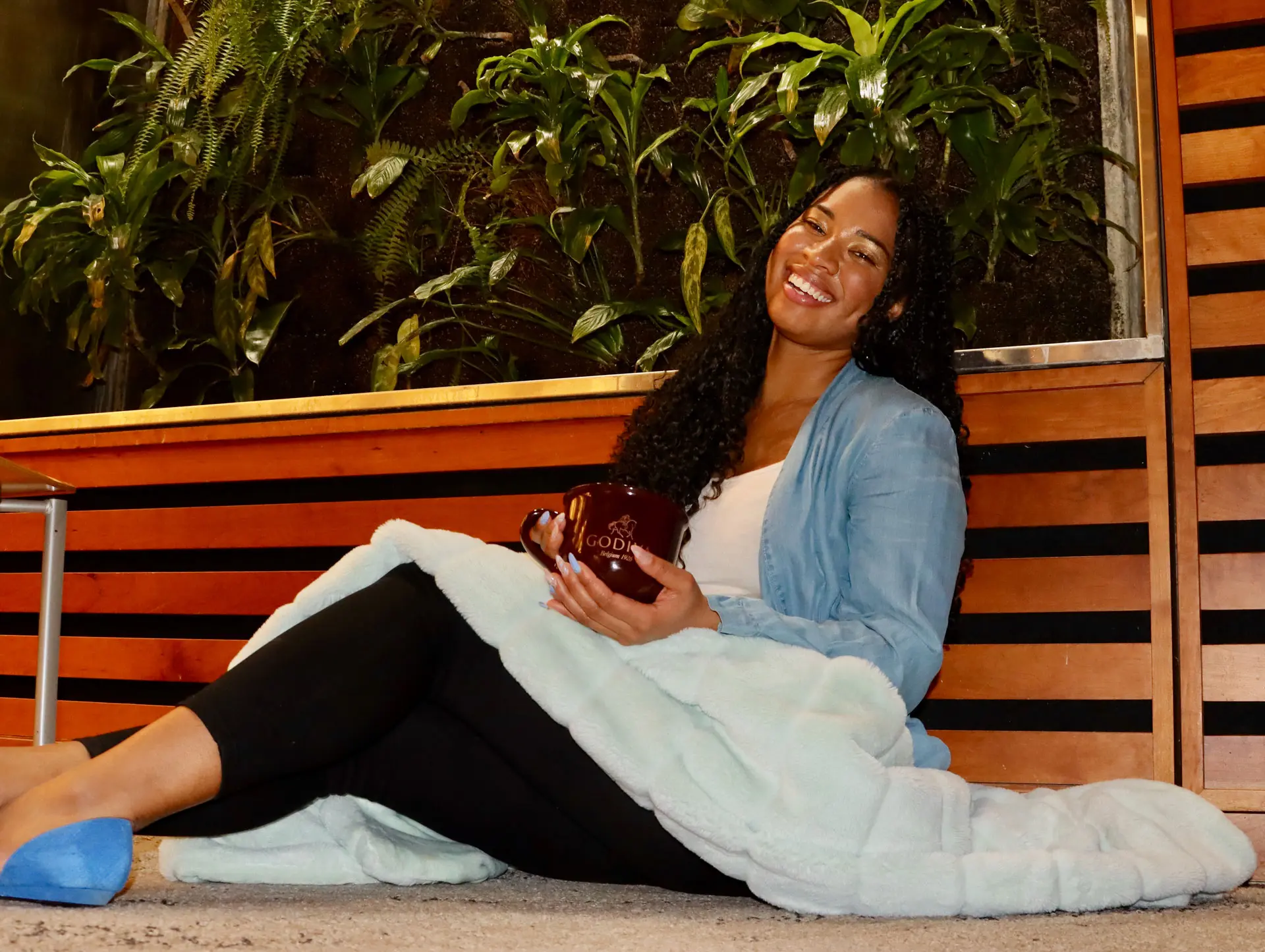
Ayssa's Experience
Education
I hold a Master of Social Work degree from the University of Toronto, Factor-Inwentash Faculty of Social Work, and a BA in Psychology received from Toronto Metropolitan University (previously known as Ryerson University).
To guide my sex therapy specialization, I also successfully completed two separate post-graduate sex therapy certificate programs through the University of Guelph.
I have completed a number of additional trainings and certifications through the years to support the continuance of my professional growth. If you’d like to know more about trainings I have completed recently, please don’t hesitate to ask!
Professional Experience
I started within the social services and social work field back in 2010, later honing in on one-to-one mental health counselling services in 2016 during my time at a men’s shelter. Around this time, I also worked with the Toronto Distress Centre on the nation’s suicide hotline, providing both support and emergency intervention services. In 2017, I began my ten year tenure with the Canadian Mental Health Association as a Youth Mental Health Worker. Here, I provided one-to-one psychotherapy and sexual health support to youth across Ontario in a mobile clinic. I continued on to work with the Toronto Rape Crisis Centre for a brief period in 2023.
Current Roles & Clinical Work
As cheesy as it sounds, it makes me feel so full to work with some really amazing clients here at my clinic.
In addition to my work in this space, I currently have the pleasure of teaching in Seneca College’s Social Service Worker program. Much of my additional clinical experience comes from hospitals and clinics across the GTA. In present day, this clinical work has landed me at Princess Margaret Cancer Centre and with Ontario Health’s Sexual Health Community of Practice.
Our Work Together Will Be
- Authentic
- Collaborative
- Skill-Building
- Self-Reclaiming
- Person-Centred
- Pleasure-Centred
- Trauma-Healing
- Explorative
My Approach
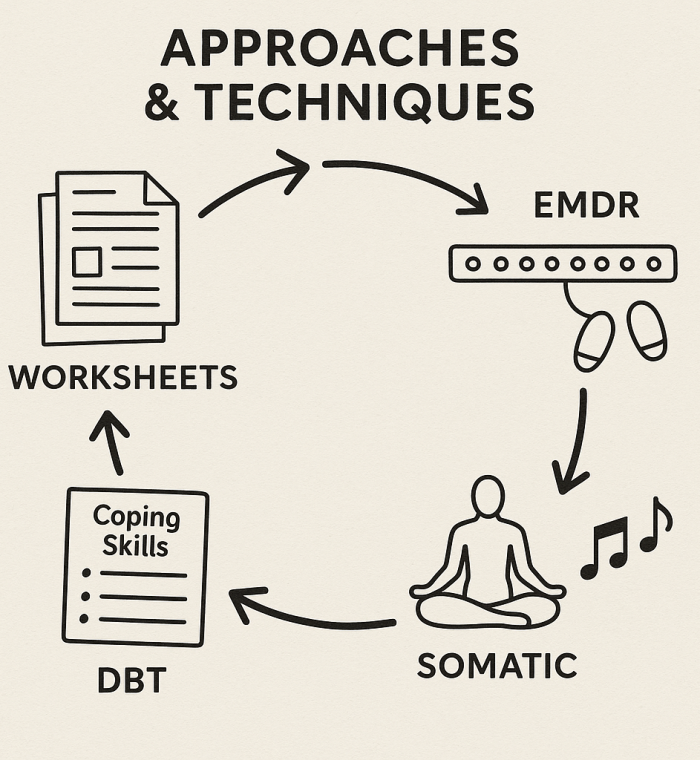
Approach & Techniques
Therapy isn’t one-size-fits-all. I draw from a range of evidence-based modalities including CBT, DBT, EFT, Attachment Theory, Narrative Therapy, and trauma-focused approaches. I’ll always explain what we’re doing and why—so the process feels clear and collaborative.

Therapeutic Philosophy
You are more than a collection of symptoms—you’re a whole person. My approach centers you as an individual, focusing on who you are today and who you're becoming. You don’t need to have all the answers—we’ll build your journey together, step by step, and celebrate progress along the way.
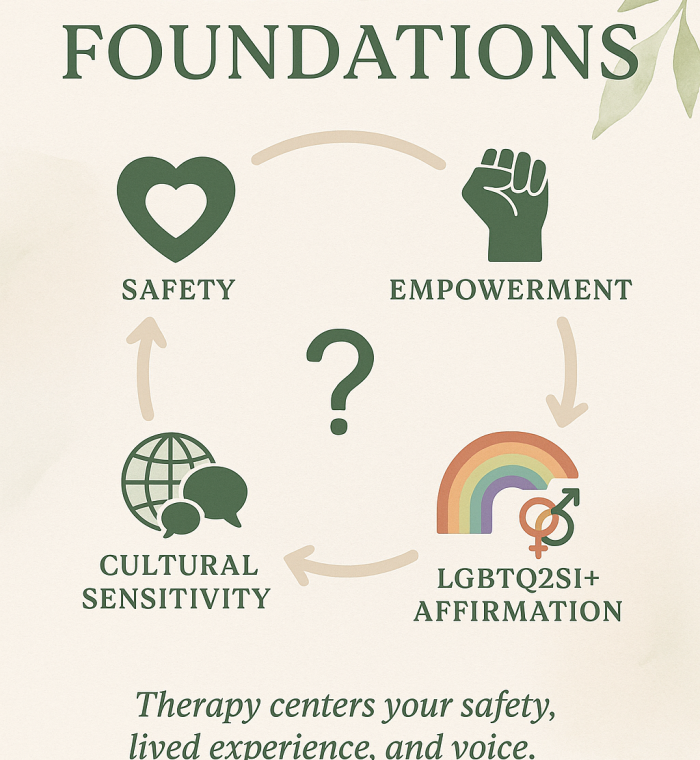
Safety & Empowerment
Our work will always be guided by a trauma-informed, culturally-informed, anti-oppressive, and LGBTQ2SI+ affirming lens. You’re in control of the pace and boundaries. Together, we’ll create a safe space where you feel heard, respected, and supported in moving toward your goals.
Education & Training
I understand the curiosity and need to know that the person you’re working with has done their training. See below for a quick snapshot of some of my completed credential. Have questions? Lets chat!

BA Psychology
Acquired from Toronto Metropolitan University. Key skills: working with mood disorders, personality disorders, and anxiety disorders. Understanding neurobiology and medications.

Master of Social Work
Acquired from the University of Toronto, Factor Inwentash Faculty of Social Work. Key skills: CBT, narrative therapy, community development, working with marginalized populations, human resources, management, and leadership.

CBT Certification
Acquired from Sick Kids Hospital Learning Institute in Toronto. Cognitive Behavioural Therapy (CBT) helps individuals with identifying, and modifying thoughts, behaviour activation and experiments, exposure, stress-reduction strategies, and problem-solving therapy.
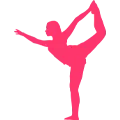
Sex Therapy
Completed with the University of Guelph. Key skills: systemic considerations, gender/sexual/erotic diversity, relationship dynamics, non-monogamy, and more
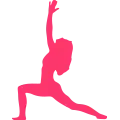
DBT for Neurodivergent Clients
Trained by expert Hannah Smith. Key takeaways: accessible and inclusive treatments for neurodivergent communities. Move away from being "more neurotypical" in Dialectical Behaviour Therapy (DBT)

Narrative Therapy
Completed with the University of Toronto. Key skills: advocacy and community work, work with marginalized groups and disrupting the status quo and oppression. Helping client re-story parts of their lives

EMDR
Completed with EMDR Consulting. Eye Movement Desensitization and Reprocessing (EMDR) uses eye movements to help clients reprocess traumatic or distressing memories and experiences. EMDR helps to change the way we respond to past trauma.

EFT - Complex Trauma
Completed with York University and Sandra Paivio. EFT aims to help clients process relational trauma. It focusses on mobilizing negative emotions such as fear, avoidance, shame, anger, and sadness. EFT increases emotional awareness.

Somatic Healing for Sexual Trauma
Completed with Khumo Masege, Licensed Therapist and Certified Holistic Sexuality Educator. This training emphasized body-based healing in it's aim to highlight that bodily reactions "aren't just symptoms—they're signals".
